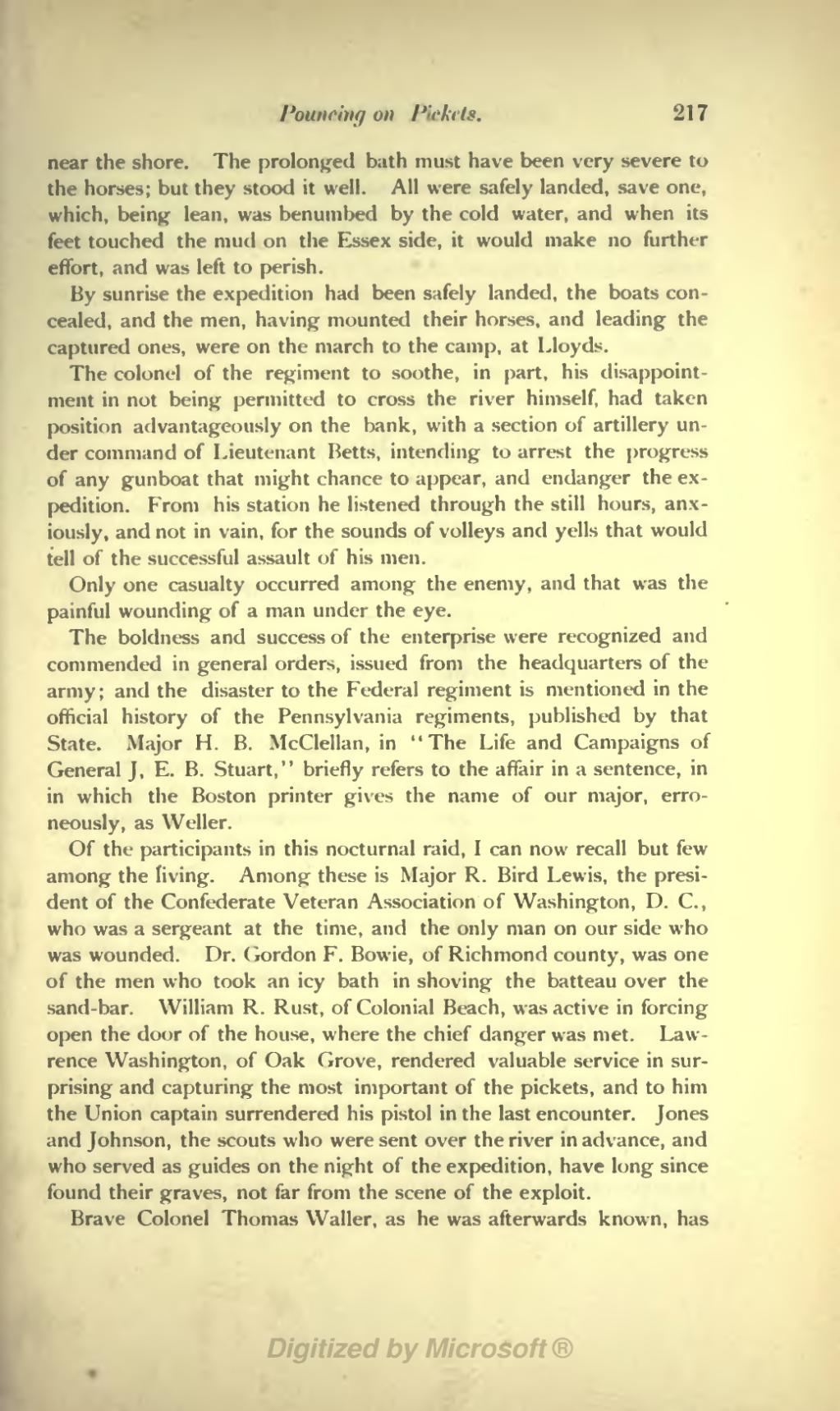nil /'//>/> . 217
near the shore. The prolonged bath must have been \< TV severe to the horses; hut they stood it well. All were safely landed, save one. which, heiuvi lean, was lienu!iil)e<l by the cold water, and when its feet touched the mud on the Essex side, it would make no further effort, and was left to perish.
By sunrise the expedition had been safely landed, the boats con- cealed, and the men, having mounted their horses, and leading the captured ones, were on the march to the camp, at Lloyds.
The colonel of the regiment to soothe, in part, his disappoint- ment in not being permitted to cross the river himself, had taken position advantageously on the bank, with a section of artillery un- der command of Lieutenant Belts, intending to arrest the progress of any gunboat that might chance to appear, and endanger the ex- pedition. From his station he listened through the still hours, anx- iously, and not in vain, for the sounds of volleys and yells that would tell of the successful assault of his men.
Only one casualty occurred among the enemy, and that was the painful wounding of a man under the eye.
The boldness and success of the enterprise were recognized and commended in general orders, issued from the headquarters of the army ; and the disaster to the Federal regiment is mentioned in the official history of the Pennsylvania regiments, published by that State. Major H. B. McClellan, in "The Life and Campaigns of General J, E. B. Stuart," briefly refers to the affair in a sentence, in in which the Boston printer gives the name of our major, erro- neously, as Weller.
Of the participants in this nocturnal raid, I can now recall but few among the living. Among these is Major R. Bird Lewis, the presi- dent of the Confederate Veteran Association of Washington, D. C., who was a sergeant at the time, and the only man on our side who was wounded. Dr. Gordon F. Bowie, of Richmond county, was one of the men who took an icy bath in shoving the batteau over the sand-bar. William R. Rust, of Colonial Beach, was active in forcing open the door of the house, where the chief danger was met. Law- rence Washington, of Oak Grove, rendered valuable service in sur- prising and capturing the most important of the pickets, and to him the Union captain surrendered his pistol in the last encounter. Jones and Johnson, the scouts who were sent over the river in advance, and who served as guides on the night of the expedition, have long since found their graves, not far from the scene of the exploit.
Brave Colonel Thomas Waller, as he was afterwards known, has
